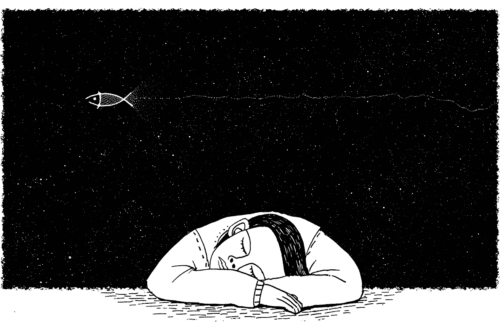Introduction
Depression is one of the most common mental health disorders, affecting over 300 million people globally. It is a serious condition that goes beyond ordinary sadness or temporary emotional struggles. Understanding the signs, symptoms, and risk factors of depression is crucial for supporting those who are suffering and working towards recovery.
With accurate information and compassionate understanding, we can overcome the misconceptions surrounding depression. Recognizing when someone needs help is an important first step in guiding them towards treatment and hope. Education and open communication can make a huge difference in improving outcomes.
Even in the darkest times, there are pathways to recovery. Knowledge and support empower us to take action when depression strikes our own lives or the lives of those we care about. By shedding light on this complex disorder, we can transform stigma into care.
What is Depression?
Depression is more than just feeling sad or going through a rough patch. It is a serious medical condition that affects how you think, feel, and function in daily life. Unlike normal emotional experiences of sadness, loss or disappointment, depression does not go away on its own and can last for a long time if left untreated.
Depression is categorized as a mood disorder. The Diagnostic and Statistical Manual of Mental Disorders (DSM) outlines several types of depressive disorders:
- Major Depressive Disorder (MDD) – This involves severe, persistent depression lasting for two weeks or longer. Symptoms occur most days and make it very difficult to function normally.
- Persistent Depressive Disorder – This is a chronic, low-grade depression lasting for two years or more. It’s less severe than major depression but still impairs quality of life.
- Seasonal Affective Disorder – Depression that follows a seasonal pattern, emerging in fall-winter and improving in spring-summer. It’s linked to shifting daylight exposure.
- Peripartum Depression – Depression occurring during pregnancy or in the weeks after giving birth. Hormone changes likely play a role.
- Premenstrual Dysphoric Disorder – Debilitating depression and irritability prior to menstruation, likely influenced by hormone fluctuations.
The key distinction between depression and ordinary sadness is severity, duration, and level of impairment. While sadness is a normal response to stress that fades, depression persists, interferes with daily life, and requires professional treatment. Recognizing the signs is the first step to recovery.
Symptoms of Depression
Depression affects people in many ways, including physically, emotionally, and behaviorally. Recognizing the diverse symptoms of depression is key to understanding when it is more than just temporary sadness or “the blues.”
Physical Symptoms
- Fatigue and low energy
- Insomnia or sleeping too much
- Appetite changes and weight fluctuation
- Digestive issues
- Headaches and chronic pain
- Slowed movements and speech
Emotional Symptoms
- Persistent feelings of sadness, emptiness, or hopelessness
- Irritability, frustration, and restlessness
- Loss of interest in activities once enjoyed
- Anxiety, worry, guilt
- Pessimism and feelings of worthlessness
- Trouble concentrating and making decisions
- Thoughts of death or suicide
Behavioral Symptoms
- Social withdrawal and isolation
- Neglecting responsibilities
- Loss of motivation
- Crying spells
- Difficulty doing daily tasks
- Avoiding social activities and hobbies
- Increased substance use
The severity of depression can range from mild to severe:
- Mild: Impacts daily life but can often manage day-to-day.
- Moderate: Symptoms clearly inhibit normal functioning.
- Severe: Completely debilitating with an inability to function.
Seeking help is crucial as soon as persistent symptoms are noticed, not just when they seem unbearable. Even mild depression deserves professional support and treatment.
Causes and Risk Factors
The causes of depression are complex and varied, involving a combination of biological, psychological, and environmental factors.
Biological Factors
- Genetics – Depression has been found to run in families, meaning certain genetic factors can increase the risk. However, genes alone do not cause depression; environmental factors also play a key role.
- Brain chemistry – Depression is associated with reduced levels of neurotransmitters like serotonin and norepinephrine. Neurotransmitter imbalances may contribute to symptoms of depression.
- Hormones – Changes in hormones due to puberty, pregnancy, postpartum periods, menopause, or thyroid problems may precipitate or worsen depression. Hormone changes impact mood regulation.
Psychological Factors
- Trauma and stress – Exposure to traumatic events or chronic stress can alter brain structure and chemistry. Trauma is strongly linked to the development of depression.
- Personality – Certain personality traits like pessimism, low self-esteem, and being overly dependent or critical can increase depression vulnerability.
- Thinking patterns – Depression is associated with distorted negative thinking patterns like rumination and pessimistic attributions. These thought processes can maintain or worsen depression.
Environmental Factors
- Loss events – The death of loved ones, relationship breakups, job loss, or financial stress can trigger depressive episodes. Loss events are common depression triggers.
- Health issues – Debilitating, chronic or terminal illnesses can lead to depression, both directly and due to associated stress and lifestyle disruption.
- Lack of support – Social isolation or loneliness is a risk factor. Having poor social connections is linked to higher rates of depression. Support networks are protective.
In summary, depression arises from a complex interplay of biological vulnerabilities, psychological characteristics, and environmental stressors and events. While genetics play a key role, adverse life circumstances and trauma are also potent contributors.
Impact of Depression
Depression can have wide-ranging effects on a person’s work, relationships, and personal life. People living with depression often struggle to concentrate, make decisions, and maintain motivation and productivity levels at work or school. Attendance and performance can suffer. Depression symptoms like fatigue, irritability, and social withdrawal can strain relationships with family, friends, and significant others. Isolating behaviors may cause relationship conflicts and complicate efforts to get support.
On a personal level, depression can negatively impact self-esteem, self-care, and overall quality of life. Loss of interest in hobbies, poor sleep habits, and changes in appetite and weight are common. The constant emotional distress, fatigue, and cognitive difficulties of depression can make it very hard to carry out routine daily activities.
Untreated depression also has significant societal and economic costs. Globally, depression is a leading cause of workplace absenteeism and impaired productivity. The condition also increases the risk of unemployment. From a broader economic standpoint, depression leads to increased healthcare expenditures as well as indirect costs related to absenteeism and loss of work productivity. Overall, the global economic burden of depression is rising steadily. Investing in mental health awareness, early screening, and access to treatment can yield significant returns for both individuals and societies.
Treating Depression
Depression is highly treatable through a combination of medication, psychotherapy, lifestyle changes, and other therapies tailored to the individual. While there is no single “one size fits all” treatment, most people can find relief through an personalized, evidence-based approach.
Medication
Antidepressant medications work by adjusting brain chemicals like serotonin and norepinephrine that impact mood. They include SSRIs (selective serotonin reuptake inhibitors) like Zoloft, SNRIs (serotonin-norepinephrine reuptake inhibitors) like Effexor, and other drug classes. Medication can relieve symptoms for many people with depression, but should be combined with therapy for the best results.
Psychotherapy
Therapy gives people tools to cope with negative thoughts and make positive changes. Cognitive behavioral therapy helps adjust harmful thinking patterns, while interpersonal therapy focuses on improving relationships. Other evidence-based modalities like acceptance commitment therapy can also be very effective. Therapy provides ongoing support for maintaining gains after acute symptoms improve.
Lifestyle Changes
Lifestyle adjustments like regular exercise, quality sleep, healthy diet, stress management, and meaningful social connections can lift mood naturally. While not a substitute for other treatments, lifestyle changes can augment recovery. Activities like yoga, mindful meditation, and journaling also help manage depression.
Emerging Treatments
Exciting new research is expanding treatment options for depression. Transcranial magnetic stimulation is a non-invasive procedure using magnetic fields to stimulate mood-regulating parts of the brain. Experimental ketamine infusions can quickly reduce severe symptoms before other treatments take effect. Genetic testing helps predict medication effectiveness. Support groups and peer counseling provide additional options.
The key is finding the right combination of treatments tailored to the individual’s needs through an ongoing dialogue with a mental health professional. With personalized treatment, most people with depression can manage symptoms and regain quality of life. Recovery is an ongoing process requiring patience and support, but remission is possible.
Supporting Loved Ones with Depression
Depression can be isolating, but support from loved ones can make a big difference on the path to recovery. Here are some tips for being there for someone with depression:
- Listen without judgement. Let them open up and vent without trying to “fix” things. Don’t tell them to “snap out of it” or minimize their feelings.
- Offer encouragement. Remind them you care and that with time and treatment, they can start to feel better. Avoid telling them to “cheer up.”
- Help with everyday tasks. Depression can make simple tasks seem daunting. Offer practical help like cleaning, errands, childcare, etc.
- Suggest activities. Gently push them to do social activities while respecting their limits. Physical activity can also help improve mood.
- Monitor their symptoms. Check in about mood, sleep patterns, appetite changes, and thoughts of self-harm. Alert their care team if you notice worsening symptoms.
- Educate yourself. Learn about depression so you can understand what your loved one is going through. Be patient and compassionate.
- Encourage professional help. Overcome stigma by emphasizing therapy and medication are effective treatments. Offer to help them make appointments.
- Take care of yourself. Supporting someone with depression can be emotionally taxing. Make time for your own self-care and seek support if needed.
- Be prepared for setbacks. Recovery is a journey with ups and downs. Stick by their side and don’t take it personally if they push you away when depressed.
- Celebrate small victories. Notice positive steps like getting out of bed, attending appointments, or engaging in self-care. Praise their efforts.
With compassion, patience and understanding, you can make a big difference in your loved one’s recovery from depression. Let them know you are there through the good days and bad.
Seeking Help
The most important first step is recognizing when depression has progressed beyond ordinary sadness and requires professional help. This can be challenging, as symptoms can develop gradually over time. Here are some signs that it may be time to seek help:
- Depressive symptoms last more than two weeks and are interfering with your ability to function at work, socially, or to take care of yourself.
- Thoughts of death, suicidal ideation, or self-harm.
- A previous episode of major depression. The likelihood of recurrence is high if you’ve experienced depression before.
- Traumatic events, significant loss, or life changes. This increases vulnerability.
- Substance abuse. This often goes hand-in-hand with depression.
- Family history of depression. Genetics can increase your risk.
If these potential red flags sound familiar, make an appointment with your doctor right away. At your appointment, be prepared to:
- Clearly describe your symptoms – how long they’ve lasted, their severity, specific examples of how they impact your daily life.
- Share any personal or family history of depression or other mental health conditions.
- List any major life events or stress factors that may be contributing.
- Bring a list of any medications or supplements you take, including dosage. Some may interact with antidepressants.
- Ask questions and discuss options. Different medications or therapies may be more/less effective for your individual case.
Being open and providing a complete picture will help your doctor make an accurate diagnosis and develop an appropriate treatment approach. With the right care team and support system, recovery is absolutely possible.
Coping Strategies
While depression cannot just be “snapped out of,” there are many proactive coping strategies that can help manage symptoms and promote recovery. Implementing small lifestyle changes and self-care practices makes a significant difference. It also empowers individuals to play an active role in their mental health.
Healthy Lifestyle Habits
- Exercise regularly. Even light exercise like walking lifts mood and relieves stress by releasing endorphins. Start small and work towards 30 minutes per day.
- Eat a balanced diet. Limit processed foods and caffeine, focusing on anti-inflammatory whole foods like fruits, vegetables, lean proteins, and healthy fats. Stay hydrated and avoid skipping meals.
- Establish a sleep routine. Try to wake up and go to bed at consistent times, avoiding screens before bed. Quality sleep reduces fatigue and stabilizes mood.
- Reduce alcohol intake. Alcohol is a depressive and should be avoided when possible. Limit to 1-2 drinks, 1-2 times per week maximum.
- Quit smoking. Nicotine dependence worsens depression symptoms. Talk to a doctor about cessation plans.
Building a Support System
- Join a support group, either in-person or online. Sharing experiences with others facing similar challenges provides perspective and hope.
- Confide in loved ones. Isolating worsens depression. Open up to trusted friends and family who will listen without judgment.
- Seek counseling or therapy. Guidance from a professional helps develop coping skills and process emotions. Group therapy also helps reduce loneliness.
- Pursue enjoyable hobbies. Creative pastimes like arts, crafts, or music lift your mood and boost your self-confidence.
Managing Stress
- Practice relaxation techniques like deep breathing, meditation, yoga, or progressive muscle relaxation. This reduces anxiety and calms the mind.
- Set reasonable goals and limits. Break large tasks into small steps, and don’t overcommit yourself. Say no to extra responsibilities.
- Spend time in nature. Getting outside, exercising, or connecting with animals relieves stress.
- Keep a journal. Writing helps organize your thoughts, process emotions, and track your moods.
Self-Care
- Take a warm bath or shower. Enjoying sensory experiences, like soothing scents or calming music, improves your mood.
- Get a massage. The healing power of touch releases muscle tension and comforting oxytocin.
- Treat yourself kindly. Be patient and positive with yourself rather than self-critical. Do something small daily that you enjoy.
- Keep a consistent morning and night routine. Maintaining structure helps manage depression and establishes stability.
With the right lifestyle changes and support, individuals can take control of their recovery from depression. Small steps towards self-care make a tremendous difference.
Conclusion
Depression is a complex condition that affects millions of people worldwide. Though the symptoms can be severe, it is important to remember that depression is treatable. With the right treatment plan, which may include medication, therapy, lifestyle changes, or often a combination of these, many people can manage their depression and regain their quality of life.
There is always hope. By understanding the various signs, causes, and treatment options for depression, we can work to reduce the stigma around mental health issues. Speaking openly and honestly is one of the most helpful steps, both for those suffering as well as friends and family trying to provide support.
If you see the symptoms of depression in yourself or a loved one, don’t hesitate to reach out for help. Useful resources include:
- National Alliance on Mental Illness Helpline: 1-800-950-6264
- Depression and Bipolar Support Alliance: www.dbsalliance.org
- Crisis Text Line: Text HOME to 741741
The road to recovery can seem long, but taking small steps each day, relying on your support system, and believing in your own resilience can help greatly. With compassion, understanding, and determination, we can strive for better mental health outcomes at both the individual and societal levels. There is light at the end of the tunnel. Stay strong and know you are not alone.
Discover more from Whispers of Insight
Subscribe to get the latest posts sent to your email.






This is such a comprehensive breakdown of Depression – explaining the different types, offering guidance for those who are supporting someone with depression and giving hope, too. This is such a wonderfully written post, Justin. As someone with depression that’s lasted years, I think you’re spot on xx
I’ve had depression since my childhood. It’s like a shadow that follows me. But, my meds and a daily routine along with therapy really help.
I’ve got you, Justin xx